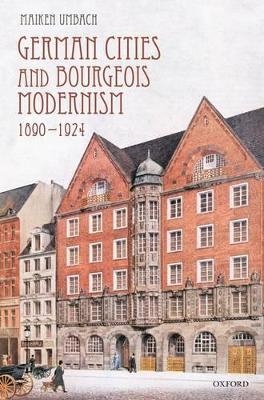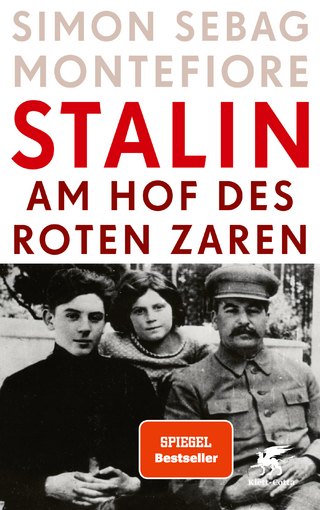
German Cities and Bourgeois Modernism, 1890-1924
Oxford University Press (Verlag)
978-0-19-955739-4 (ISBN)
This is a study of a distinctive brand of modernism that first emerged in late nineteenth-century Germany and remained influential throughout the inter-war years and beyond. Its supporters saw themselves as a new elite, ideally placed to tackle the many challenges facing the young and rapidly industrializing German nation-state. They defined themselves as bourgeois, and acted as self-appointed champions of a modern consciousness. Focusing on figures such as Hermann Muthesius, Fritz Schumacher, and Karl-Ernst Osthaus, and the activities of the Deutscher Werkbund and other networks of bourgeois designers, writers, and 'experts', this book shows how bourgeois modernism shaped the infrastructure of social and political life in early twentieth-century Germany.
Bourgeois modernism exercised its power not so much in the realm of ideas, but by transforming the physical environment of German cities, from domestic interiors, via consumer objects, to urban and regional planning. Drawing on a detailed analysis of key material sites of bourgeois modernism, and interpreting them in conjunction with written sources, this study offers new insights into the history of the bourgeois mindset and its operations in the private and public realms. Thematic chapters examine leitmotifs such as the sense of locality and place, the sense of history and time, and the sense of nature and culture. Yet for all its self-conscious progressivism, German bourgeois modernism was not an inevitable precursor of neo-liberal global capitalism. It remained a hotly contested historical construct, which was constantly re-defined in different geographical and political settings.
Maiken Umbach teaches modern European history at the University of Manchester and has held fellowships and visiting appointments at the University of Cambridge, the Australian National University, Harvard, the Universitat Pompeu Fabra, Barcelona, and University College London. Her principal research interest concerns the changing role and configuration of regional identities and place-based politics in German and European history, from the eighteenth to the twentieth centuries. She has published a number of works in the field, including Federalism and Enlightenment in Germany, 1740-1806 (2000), German Federalism: Past, Present, Future (as editor, 2002) and Vernacular Modernism: Heimat, Globalization and the Built Environment (2004, co-edited with Bernd Hüppauf). She is also joint editor of the journal German History.
1. Introduction ; 2. The Sense of Time: Configuring History and Memory in the City ; 3. The Sense of Place: Representing the Local in the Modern City ; 4. Nature and Culture: Greening the City ; 5. The Designed Object: Commercial Culture and the Global Market ; 6. Liberal Governmentality and the Spatial Politics of 'Burgerlichkeit' ; 7. Conclusion & Epilogue: Bourgeois Modernism and National Socialism
| Erscheint lt. Verlag | 6.8.2009 |
|---|---|
| Zusatzinfo | 55 black and white halftones |
| Verlagsort | Oxford |
| Sprache | englisch |
| Maße | 161 x 240 mm |
| Gewicht | 608 g |
| Themenwelt | Kunst / Musik / Theater ► Design / Innenarchitektur / Mode |
| Kunst / Musik / Theater ► Kunstgeschichte / Kunststile | |
| Geisteswissenschaften ► Geschichte ► Allgemeines / Lexika | |
| Geisteswissenschaften ► Geschichte ► Regional- / Ländergeschichte | |
| Technik ► Architektur | |
| ISBN-10 | 0-19-955739-X / 019955739X |
| ISBN-13 | 978-0-19-955739-4 / 9780199557394 |
| Zustand | Neuware |
| Haben Sie eine Frage zum Produkt? |
aus dem Bereich


